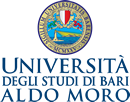Didactique des langues et droits linguistiques de première catégorie. Enjeux et facteurs de l’intégration des immigrés en France
DOI:
https://doi.org/10.15162/1970-1861/1902Parole chiave:
FLE/FLS Didactics, Linguistic Rights, Linguistic Policy, Linguistic Integration, Immigration in FranceAbstract
Learning the language of the host country, in this case French in France, is a fundamental stage in the integration of immigrants, both linguistically and otherwise. This learning represents a ‘first category’ linguistic right because it enables immigrants, if they are sufficiently proficient in French, to really benefit from all the other fundamental rights (right to health, to education, to a fair trial, to freedom of expression, etc.). But this right to learn the official language, insofar as it determines the quality of life in society, and therefore also contributes to the security of that same society, is also a duty, an obligation imposed by the public authorities. Consequently, any language learning for immigrants can only be based on a sort of pact, or contract, between the immigrant and the State, which must provide the immigrant with the conditions to learn the language of the country effectively. In this contribution, we propose a three-stage approach: a) general considerations of a legal-linguistic nature; b) the presentation of essential elements that emerged from an exploratory field study recently carried out in France with two private organizations; c) methodological conclusions concerning, first and foremost, how to make the data speak, and how to analyse the (socio)linguistic and extralinguistic factors that are supposed to determine the quality or effectiveness of this learning.






